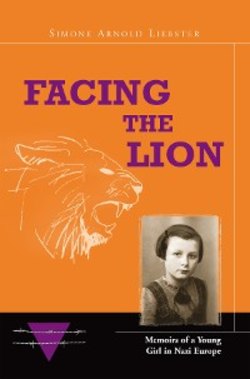Читать книгу Facing the Lion - Simone Arnold-Liebster - Страница 6
FOREWORD (von Sybil Milton)
ОглавлениеFOREWORD
The autobiography of Simone Liebster, née Arnold, is a compelling story about her personal search for faith and identity that entailed difficult social, political, and religious choices in her childhood. Born in 1930 near Mulhouse in Alsace, then part of France, Simone Arnold Liebster grew up in an extended close-knit Catholic family during the 1930s—a decade of political and social unrest and uncertainty. Religious conformity was the norm in this overwhelmingly Catholic region. In 1938, Emma Arnold, Simone’s mother, converted to the beliefs of Jehovah’s Witnesses, despite family opposition. Subsequently, Simone’s father, Adolphe Arnold, was also baptized as a Witness, and Simone converted while still a child, in 1941.
The areas of Alsace and Lorraine had been German between 1871 and 1918, reverting to French jurisdiction until mid-June 1940, when the region was again incorporated into the German Reich. Almost immediately, the Germans imposed their social and political values, rapidly excluding large numbers of so-called “undesirables,” including Jehovah’s Witnesses, who had no place in the German “new order.” German again became the language of the region; soon nonconformists had to fear denunciations by neighbors as the bonds of civil society were undermined.
Simone’s father, Adolphe, was arrested on September 4, 1941, less than one month after Simone had been baptized as a Witness. With his arrest, Simone and her mother faced mounting economic hardships since her father’s wages had been confiscated at his arrest, his bank account impounded, and her mother denied a work permit. During the following two years, Simone and her mother secured food in exchange for small jobs.
After his arrest, Simone’s father was initially imprisoned at the Schirmeck-Vorbruck internment camp in Labroque. This prison camp had been opened in mid-July 1940 “for individuals, whose behavior would damage German authority in the region” and “to teach disobedient elements in Alsace proper attitudes to work and the political order of the German Reich.”[1] The list of so-called “undesirables” and “disobedient elements” followed the usual categories applied by the Germans in all occupied territories and also included Jehovah’s Witnesses. Since their beliefs did not allow them to render unconditional obedience to any state, the Witnesses in Alsace and Lorraine were subjected to the same persecution that other Witnesses had been facing in Nazi Germany after 1933. Simone’s father, Adolphe Arnold, was subsequently moved from Schirmeck to Dachau and Mauthausen-Gusen concentration camps, and later liberated in May 1945 at the Ebensee subcamp of Mauthausen.
After 1941, Simone came under increasing physical and psychological intimidation at school to conform to her classmates’ behavior, since she had refused to use the “Heil Hitler” salute or to join the League of German Girls (Bund deutscher Mädel). Intimidation and retaliation extended to school-age Jehovah’s Witness children both in Nazi Germany and in incorporated Alsace and Lorraine. When Witness children refused to enroll either in the Hitler Youth or the League of German Girls or to conform to the norms of Nazi social and political behavior, school officials removed them from parental custody and sent them to Nazi homes and juvenile correctional institutions.
More than 500 such minor Jehovah’s Witness children in Nazi Germany were involuntarily separated from their parents after formal judicial proceedings. Simone’s autobiography gives us explicit details about the lives of these children in a Nazi reform school during the war years. Parental custody and contact was suspended if a child was found guilty of immoral and dishonorable behavior—that is, not belonging to Nazi organizations. School officials, police, and juvenile and district courts ruled that Witness parents endangered their children’s welfare by not conforming to the norms of a Nazified educational system and society. The subsequent fate of these children removed from their families has seldom been told in detail. Simone Arnold Liebster’s memoirs enable us to understand more about the experiences of these children.
Simone Arnold was expelled from school after being subjected to physical and psychological brutality and pressures to conform. At the age of twelve, she was taken from her mother’s custody and involuntarily transferred to the Wessenberg Erziehungsanstalt, a reform school, in Konstanz (Germany). Plunged into a world of persecution and lacking contact with her parents, Simone Arnold had to surrender her adolescence in order to survive. The world of childhood and adolescence is usually a time of growth and development. For children trapped under Nazi rule, life became an inverted world of shrinking horizons and terror.
Simone Arnold Liebster’s autobiography restores individuality and identity to the otherwise anonymous victims of the Nazis and reveals her strength of will to maintain whatever normality was possible in her fight for physical and psychological survival. Her story is one of hope, strength, and courage. Despite the harsh and tragic Nazi period, Simone Liebster’s narrative reveals her courage in maintaining her social and religious values. It is a story worth reading and enables us to understand the fate of Jehovah’s Witness children during the Holocaust.
— Sybil Milton, former Senior Historian, U.S. Holocaust Memorial Museum Spring 2000
